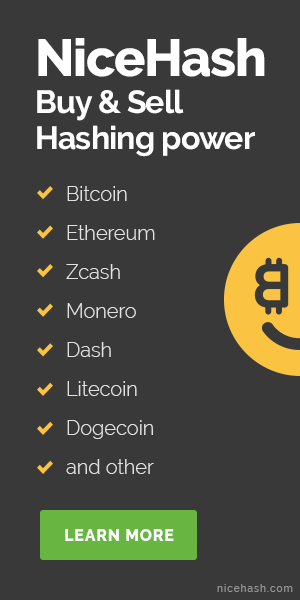Here’s why you should get
a hardware wallet
If your thing when trading is to manage high volumes of cryptocurrency on a daily basis you’ll naturally have a hot wallet to have quick access to the coins you use to trade with. This is common because most forms of cold storage tend to be rather impractical to use if you’re a day trader. However, there’s a tradeoff for the commodity of having quick access to your coins, and that is the fact that a hot wallet exposes you to a lot of risks and vulnerabilities.
Before we get further into the topic, let’s explain what a hot and cold wallet is:
Hot wallet
Colloquially referred as a “hot wallet,” this is the wallet you’ll be using for daily transactions, much like a physical wallet that you keep in your pocket. This term is also used because these wallets are connected to the internet, and as long as you have access to the internet you can access your wallet from anywhere in the world. Simply create and account in an exchange of your choice and in a matter of minutes you’ll have your own cryptocurrency wallet.
Cold wallet
This wallet is where you want to avoid any compromises in security, since this is where your savings will be stored, much like a bank account. Because of this, you might want to look for the best security measures available. One of the ways to do this is by getting a “cold wallet.” This term is used for wallets or services that store your coins offline, making it less vulnerable to hackers and any other potential security risks.
The Coinbase vault service is a good example of cold storage, as they’re an online service that actually stores your coins offline and spreads them out through multiple secure locations, meaning they’re pretty much invulnerable to any kind of hack.
However, the problem with something like a vault service comes from the fact that withdrawing money from it can be a bit of a pain if you’re in a hurry, as you’ll have to deal with several layers of verification. And even then, if you can somehow deal with the verification process in a quick manner, you’ll still have to wait 48 hours for the service to actually let you withdraw your coins.
About hardware wallets
As you can see, it won’t come off as a surprise that a vault service is less than optimal if you’re someone that actively trades. However, being active doesn’t mean you shouldn’t be able to have a higher level of security even if you’re a day trader. That’s why we have hardware wallets.
Hardware wallets are a form of cold storage that doesn’t require you to trust a third party with your coins, and is actually more practical and secure at the expense of being a physical object and requiring some knowledge about cryptocurrency to properly set up and use. More importantly, it requires you to be very responsible as being a hardware device means it could get lost and with that, you could potentially lose a lot of money.
Much like the name implies, a hardware wallet is a physical form of cryptocurrency wallet – usually a USB dongle – that stores your private keys completely offline, meaning that no one but you has access to it. These wallets tend to stand out not only because their offline nature makes them extremely secure, but because on top of that they have other features that make them stand out even more, such as:
- The fact that they’re completely immune to computer viruses that are known to steal from users’ software wallets.
- Private keys are stored in a small sector of the USB dongle that is impossible to transfer out of the device in plain text, which means that even if someone else has your hardware wallet it’s unlikely they’ll be able to get something out of it as they can’t possibly access it without the necessary data.
- For the most part, the software that the manufacturers develop for their respective wallets is open source, which means that the user can be at ease as they can see how the device operates through the software.
Early on, they used to be rather unintuitive for new users, but as time went on and the cryptocurrency landscape matured, wallets became much more user friendly without losing what makes them really good: their level of security. So, if you’re interested in storing your coins in what is the safest way possible, be sure to check out some of the hardware wallets I’ve reviewed! You’re guaranteed to end up getting one of them.






